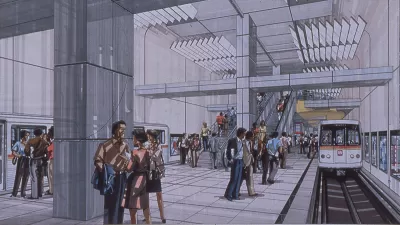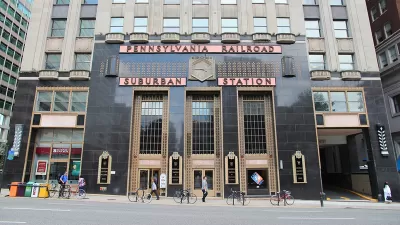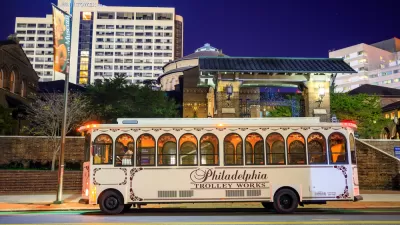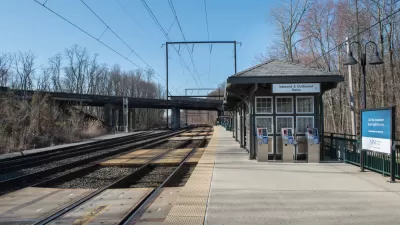In PlanPhilly, a discussion on Jarrett Walker's brand of humanities-infused transit planning. The wonky stuff is all well and good, but in the end it's all about simple access and freedom of movement.

"'Frequency is freedom,' said Jarrett Walker, earnestly in a philosophy lecture disguised as a talk on transit planning." [...] "'We all have a sense about freedom and imprisonment—It's about not being able to move. We are all in a prison, physically speaking, where the walls are where we can get to in a reasonable amount of time.'"
Jim Saksa writes about Walker's approach to transit planning, emphasizing the human dynamic before getting technical. For one thing, Walker insists on distinguishing between the "choice" rider (someone who has another option) and the "dependent" rider (somebody who must take the bus). "Imagine what kind of service the dependent bus rider would want, and deliver that, rather than trying to dream up a service for the choice rider."
Walker tends to eschew ridership predictions and overly-complex models. "It may be my philosophical training: I start with skepticism. [...] I start with what I know. That's why I start with geometry—I'm sure about that, and in a way that I'm not sure with psychology or human behavior."
Saksa suggests that SEPTA can take several lessons from Walker. "First, Walker emphasized the importance of maps—particularly frequency maps—in conveying the freedom offered by a transit system to its potential riders. Second, Walker noted that straight routes aligned in grid systems maximize a rider's abundance of access."
Read more from Jarrett Walker at his blog, Human Transit.
FULL STORY: Jarrett Walker's philosophy of public transit as means to freedom

Alabama: Trump Terminates Settlements for Black Communities Harmed By Raw Sewage
Trump deemed the landmark civil rights agreement “illegal DEI and environmental justice policy.”

Planetizen Federal Action Tracker
A weekly monitor of how Trump’s orders and actions are impacting planners and planning in America.

The 120 Year Old Tiny Home Villages That Sheltered San Francisco’s Earthquake Refugees
More than a century ago, San Francisco mobilized to house thousands of residents displaced by the 1906 earthquake. Could their strategy offer a model for the present?

Opinion: California’s SB 79 Would Improve Housing Affordability and Transit Access
A proposed bill would legalize transit-oriented development statewide.

Record Temperatures Prompt Push for Environmental Justice Bills
Nevada legislators are proposing laws that would mandate heat mitigation measures to protect residents from the impacts of extreme heat.

Downtown Pittsburgh Set to Gain 1,300 New Housing Units
Pittsburgh’s office buildings, many of which date back to the early 20th century, are prime candidates for conversion to housing.
Urban Design for Planners 1: Software Tools
This six-course series explores essential urban design concepts using open source software and equips planners with the tools they need to participate fully in the urban design process.
Planning for Universal Design
Learn the tools for implementing Universal Design in planning regulations.
Clanton & Associates, Inc.
Jessamine County Fiscal Court
Institute for Housing and Urban Development Studies (IHS)
City of Grandview
Harvard GSD Executive Education
Toledo-Lucas County Plan Commissions
Salt Lake City
NYU Wagner Graduate School of Public Service





























